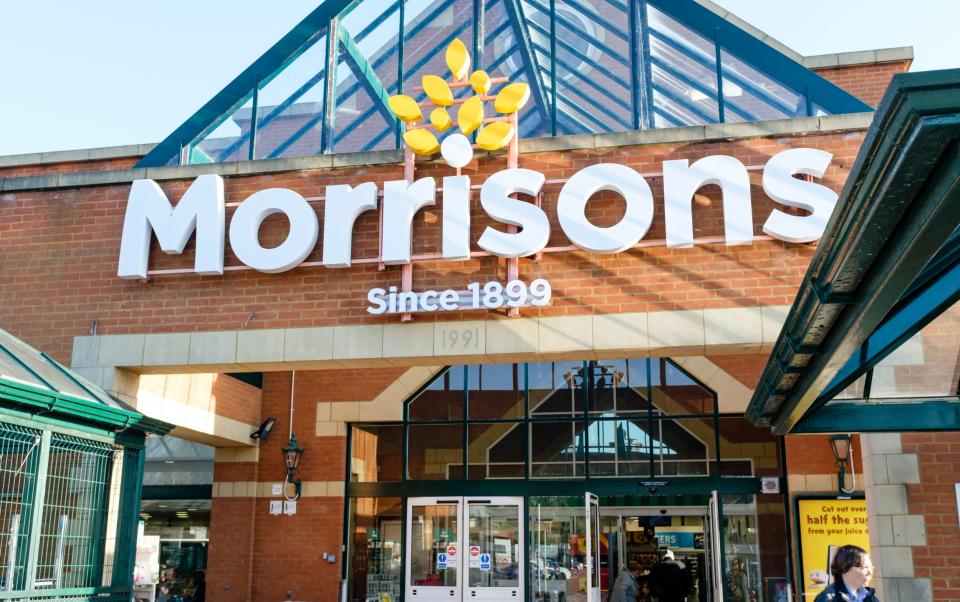Morrisons’ losses mount amid debt finance pressures

Morrisons posted widening losses in the first quarter after the retailer was weighed down by debt finance costs tied to its private equity takeover.
The supermarket chain revealed pre-tax losses of £156m over the 13 weeks to January, which comes as the business pursues an ambitious turnaround plan.
Losses at the Bradford-based retailer deepened after recording £141m of finance costs over the period, driven by higher interest rates.
Morrisons has faced huge financial pressure since it was bought by private equity firm Clayton, Dubilier & Rice (CD&R) for £10bn in 2021.
The deal took the company off the London Stock Exchange for the first time since 1967, saddling the business with billions of pounds in debt.
A sharp rise in borrowing costs has since left Morrisons exposed to increased financial pressures, with its net debt pile rising to £7.28bn in January.
This led to Morrisons plunging to an annual £1bn loss in 2023.
Last year, credit ratings agency Moody’s downgraded its outlook for Morrisons from “stable” to “negative”, which has made it harder for the retailer to borrow.
It comes as chief executive Rami Baitiéh battles to shake up the business after it lost its spot as Britain’s fourth-largest grocer to German discounter Aldi in 2022.
Mr Baitiéh, who was hired from Carrefour to replace David Potts in November, has vowed to “reinvigorate” the company after admitting it had fallen “below the pack”.
He aims to do so by making groceries cheaper and expanding the retailer’s share of the convenience market.
Morrisons recently began price-matching Aldi and Lidl stores in an effort to lure back customers from the discounters. It has also started rolling out more general merchandise in its stores, viewed as a drive to mimic their “middle aisles”.
The Telegraph revealed in January that Morrisons was carving out areas on the shop floor to sell ranges of low-priced jewellery, luggage and shoes in a trial.
Mr Baitiéh, meanwhile, has taken a hands-on approach to fielding complaints from customers, adding his email address to the company’s customer service page. He also changed Morrisons’ policy to ditch the four-day week for head office workers.
However, total revenue at Morrisons’ holding company, Market Bidco, remained flat at £4.7bn last quarter after being hit with a reduction in fuel sales, accounts published on Wednesday show.
Morrisons said its sale of 337 petrol forecourts to Motor Fuel Group for £2.5bn is expected to be completed halfway through 2024.
The retailer is poised to receive £1.8bn from the deal, after tax and fees, with bosses expected to use a large part of the payout to reduce its debt pile.
Speaking earlier this year, Morrisons’ chief financial officer Joanna Goff said: “I don’t actually see debt reduction and investment as two separate parts.
“Actually reducing the level of debt will reduce our interest costs and then in turn, obviously, we’ll have more that we can use in investing in the stores.”

 Yahoo Finance
Yahoo Finance 